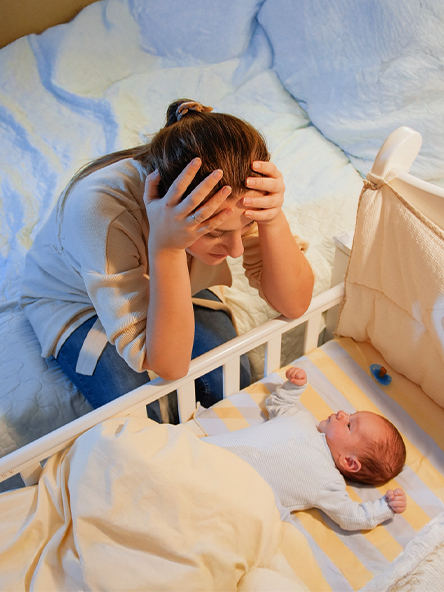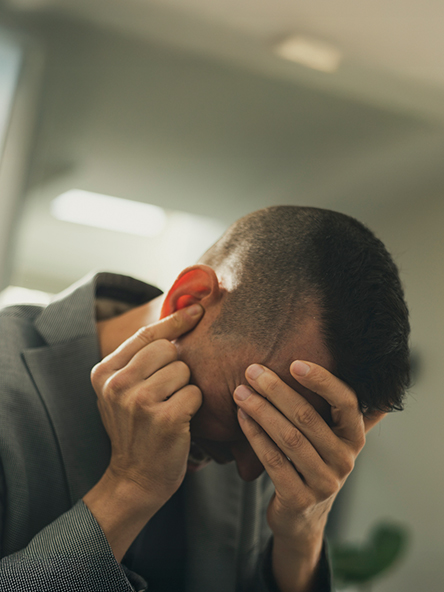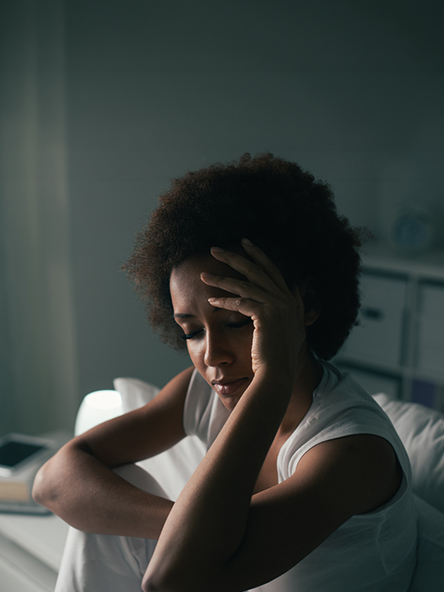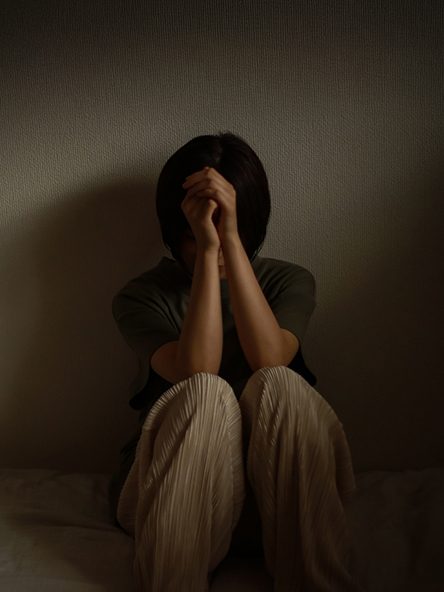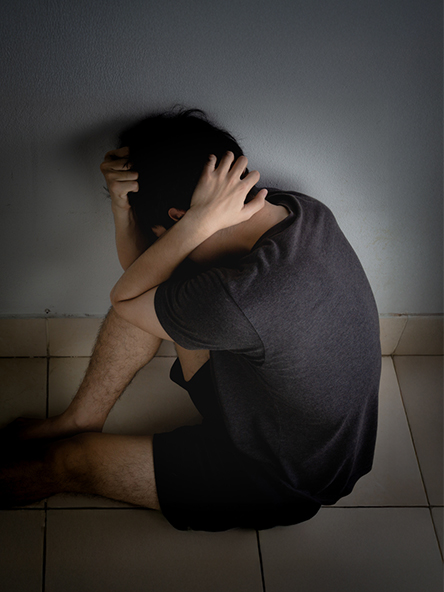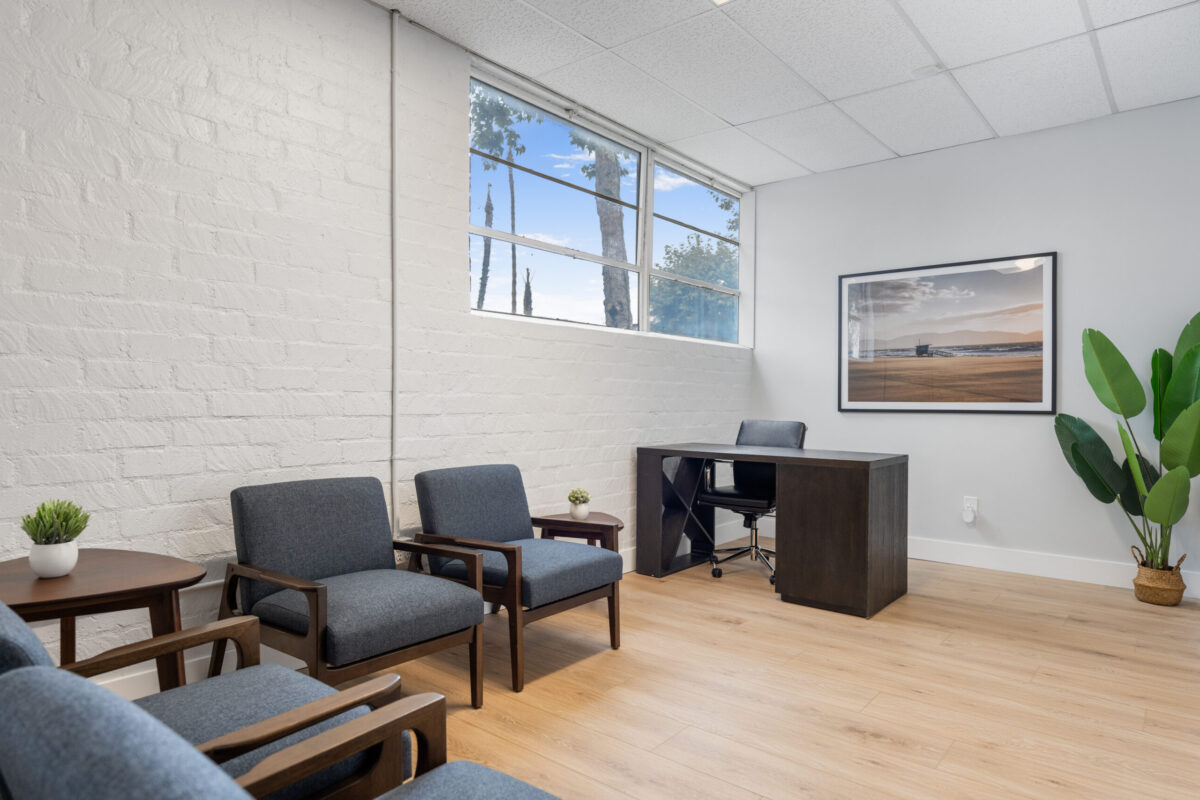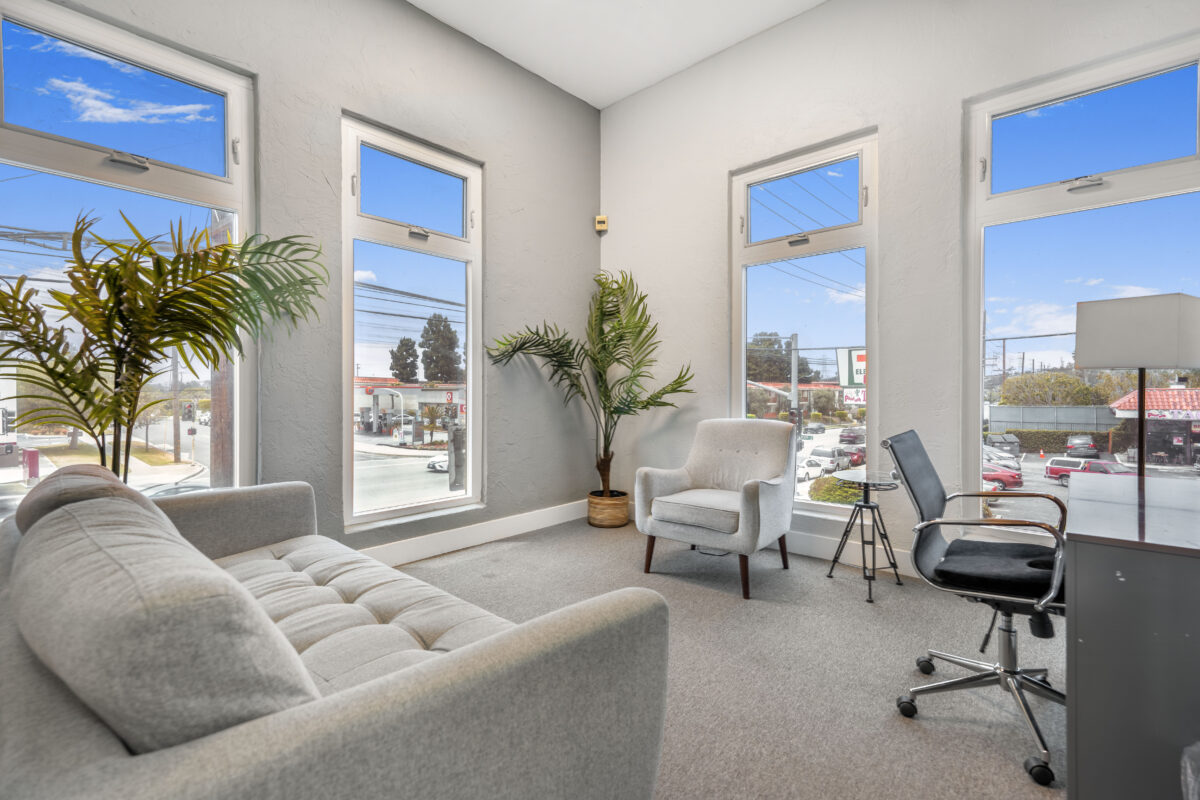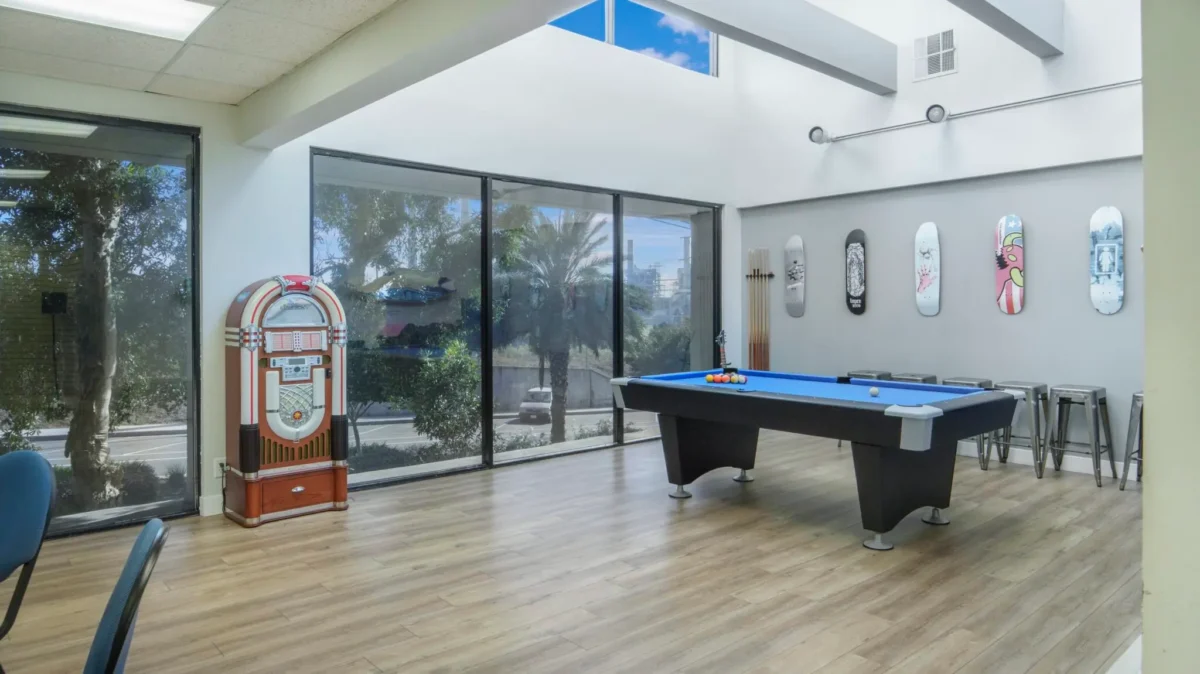Caring support for your psychosis
Experiencing psychosis can be incredibly disorienting and frightening. Despite being a serious mental health condition, psychosis is treatable.
At Clear Behavioral Health, we’ve designed specialized programs that cater to your specific needs, providing you with the right support to navigate through these challenging experiences and regain control of your life.
We are in-network
We work with most major insurance providers to make quality treatment accessible.
Let us help you through the maze.
Don’t let cost be a barrier to recovery
We’ll review your insurance, answer your questions, and handle the administrative details for you.
What to expect with our psychosis programs
Depending on your needs, your psychosis treatment may begin in our inpatient psychosis treatment program, our Partial Hospitalization Program (PHP), or our Intensive Outpatient Program (IOP). These programs are designed for clients who need an elevated level of care above weekly therapy or are transitioning from a hospitalization level of care, offering structured support that meets your needs.
Our psychosis programs include individual and group therapy, case management, holistic treatments, personalized assessments, and medication management when needed. This integrated approach supports sustainable mind-body wellness, and after completing treatment, you will join our alumni community for continued connection and support.
Comparison table for psychosis treatments – virtual IOP, inpatient, and outpatient PHP and IOP
| Feature | Inpatient Psychosis Treatment | Outpatient PHP & IOP | Virtual IOP |
| Duration of program | 24/7 care, usually 1-4 weeks, depending on needs | PHP: Full day (5 days a week), IOP: 3-5 days per week | Typically 4-6 weeks, 3-5 days per week |
| Level of supervision | High, 24-hour care and supervision | Moderate, scheduled therapy with some autonomy | Moderate, with regular check-ins via video or phone |
| Treatment Level | Individuals with severe Psychosis symptoms, safety concerns, or difficulty functioning independently | Teens and adults with moderate to severe Psychosis need more support than weekly therapy | Adults with Psychosis who need structured care with flexibility due to work, distance, or transportation |
| Therapeutic modalities | CBT, DBT, psychodynamic therapy, and medication management | CBT, DBT, family therapy, and skill-building exercises | CBT, DBT, mindfulness, and peer support |
What is psychosis?
Psychosis is a mental health condition that causes a disconnection from reality, often manifesting as hallucinations, delusions, and confusion.
An episode of psychosis can be triggered by various factors, including mental health disorders, substance use, or physical health issues.
Psychosis is not a sign of weakness or personal failure. It’s a medical condition that requires treatment and care.
Types of psychosis
Signs and symptoms of psychosis
- Hallucinations: Hearing voices, seeing things that aren’t there, or feeling things that aren’t happening.
- Delusions: Holding beliefs that are not based in reality, such as thinking you have special powers or that others are plotting against you.
- Disorganized thinking: Having trouble organizing thoughts or making sense of conversations.
- Impaired reality testing: Difficulty distinguishing what is real from what is not.
- Mood disturbances: Emotional swings or extreme mood changes.
- Cognitive challenges: Difficulty concentrating, remembering things, or making decisions.

15+
Years
Experience

Psychosis treatment at Clear Behavioral Health
Our team of dedicated mental health experts takes a collaborative approach to treatment, helping you understand the nature of your psychosis symptoms, manage distressing thoughts, and rebuild your path to healing.
Expert team
Experienced psychiatrists, therapists, and wellness professionals dedicated to your recovery.
Accredited excellence




Not sure which psychosis treatment program is right for you?
Our clinical team will complete a comprehensive assessment of psychosis symptoms and guide you to the most effective level of care for stabilization and long-term recovery.
Our treatment philosophy
At Clear Behavioral Health, our treatment philosophy centers on personalized care that integrates therapy, medication, and support to foster long-term recovery and emotional well-being.
Psychotherapy
Psychotherapy offers a supportive space to explore thoughts, emotions, and behaviors. As part of psychotherapy, Cognitive Behavioral Therapy (CBT) focuses on identifying and changing negative thought patterns to improve mood and behavior.
Medications
Medications, including antipsychotics and other neuropsychiatric medications, can help stabilize mood, reduce symptoms, and complement therapy for comprehensive mental health care.
Holistic groups
Yoga, meditation, sound baths, and other holistic therapies are practiced daily to restore balance between your mind and body.
Community and peer support
A supportive environment that fosters connection through group therapy, shared understanding, and encouragement throughout the recovery process.
Skill building
Practical, evidence-based tools to help you manage symptoms, build resilience, and improve daily functioning.
Ongoing aftercare
A personalized plan for after you complete your treatment helps keep you connected and supported.
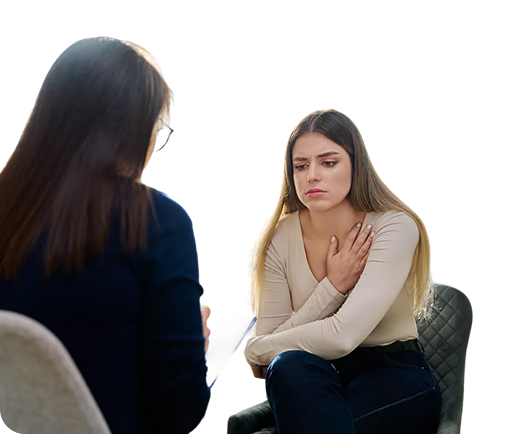
How to start
We’re ready to support you on your healing journey.
step
01
Connect with us
We’ll work together to figure out the best path forward, and even help you navigate your insurance.
We’ll make the process simple so you can focus on the important stuff.
step
02
Meet your care team
Get matched with a provider who fits your personality, needs, and goals.
We won’t stop until we find the right clinician for you or your loved one.
step
03
Start the journey
Take the courageous first step toward a healthier future.
We’ll provide compassionate care that fits with your schedule and your life.
Stories of hope & recovery
Hear real experiences from clients who found healing and hope.
Our other services
We provide mental health services for teens and adults, as well as substance use disorder treatment for adults across Los Angeles and California. Learn more about some of our featured services:

Mental health conditions we treat
No matter your mental health challenges, we’re here to help. Our expert team of psychiatrists and mental health practitioners conducts thorough clinical assessments to diagnose and treat a range of mental health conditions, including depressive disorders, anxiety disorders, mood disorders, and more.

Drug and alcohol addictions we treat
Our alcohol and drug detox and rehab programs feature a dedicated team of addiction specialists, drug and alcohol counselors, and board-certified psychiatrists providing comprehensive evaluations to diagnose and treat your addiction.
Frequently asked questions
Get answers to common questions about psychosis treatment.
Can psychosis be cured?
Psychosis is a complex and nuanced disorder. Depending on the type of psychosis you are experiencing and the severity of your psychosis symptoms, there are many forms of treatment to manage your psychosis effectively.
“Curing” your psychosis depends on your individual circumstances. However, with support such as antipsychotic medications, therapy, and community support, you can get to a life-long place of clarity and mental wellness.
How long does psychosis last?
The length of psychotic symptoms depends on the root cause of the symptoms and your individual circumstances. Some diagnoses, such as brief psychosis, can last anywhere from a few days to a month.
Other psychosis diagnoses can be chronic and last indefinitely. Finding treatment can reduce the frequency of your symptoms and improve your overall quality of life. Call us today to begin your treatment journey.
What does psychosis treatment include?
Psychosis affects each person differently, which means treatment for psychosis varies depending on the severity of your symptoms. Our treatment programs for psychosis include individual therapy sessions using therapy modalities such as cognitive behavioral therapy (CBT) and dialectical behavior therapy (DBT), and group therapy sessions with your peers.
You’ll also meet with a case manager in both an individual and group setting to develop coping and life skills to take with you after treatment. We also integrate holistic group therapy into our treatment programs, which includes mind-body healing through yoga, meditation, sound baths, and more.
How long does treatment for psychosis typically last?
Treatment length varies by individual, but many people begin seeing improvement within weeks to months. Long term treatment may be recommended to stabilize symptoms, build coping skills, and support ongoing recovery. Your clinician will create a personalized plan based on your needs and progress.
Can therapy alone help with psychosis?
Therapy can be very helpful, but psychosis is most effectively treated with a combination of approaches. Clear Behavioral Health often uses therapy alongside medication management, psychoeducation, family support, and skills building to reduce symptoms and improve functioning.
How do I know if I, or a loved one, needs psychosis treatment?
If you notice symptoms such as hallucinations, delusional thinking, extreme confusion, withdrawal from others, or a sudden change in behavior or functioning, it’s important to seek help. Early evaluation by a mental health professional can determine whether symptoms are related to psychosis or another condition.
Does early treatment improve recovery outcomes?
Yes. Early intervention is strongly linked to better long-term outcomes. Getting treatment as soon as symptoms appear can reduce the severity of episodes, improve stability, and support faster recovery.
Take the first step toward healing
Contact us today for a free, confidential consultation.
Available 24/7
Our admissions team is ready to help anytime, day or night.
What to expect when you call
- Compassionate conversation about your situation.
- Free insurance verification and benefits check.
- Personalized treatment recommendations.
- Fast admission process (often same-day placement).
Our locations

Your next step is clear
There’s no need to keep wondering whether or when to take the next step. Our team is ready to help. Simply call us today at 877.799.1985 or request a consultation below.













